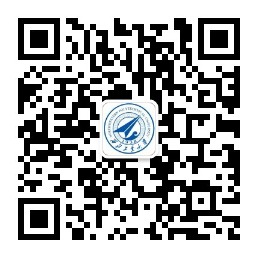To welcome the 22nd “Sanhang Cup” and the 14th “Challenge Cup” competitions and to help participating teams better understand the competition process, become proficient in project content, and master defense skills, QMES held an Online Mobilization Conference and Rehearsal Meeting on March 10, 2024. The rehearsal invited Dai Fuping, the Secretary of the School Party Committee; Cheng Yin, Vice Secretary; Li Zhen, Professor from the School of Materials Science; Yan Yi, Professor from the School of Chemistry and Chemical Engineering; Qin Jianbin, Associate Professor from the School of Chemistry and Chemical Engineering; Feng Huiying, teacher from the Student Affairs Office; Liu Jia, Associate Professor of QMES; Zhuang Qiang, Associate Professor of QMES; Huang Quanzhang, Secretary of the Youth League Committee; and Song Jiayin, teacher from the Student Office to participate in the meeting.13 teams participated in the rehearsal.
At the beginning, Dai Fuping delivered a speech. He emphasized that QMES has always attached great importance to encouraging students to participate in innovation and entrepreneurship competitions. The school spares no effort in supporting and assisting participating teams in various stages such as project selection, coaching, polishing, and pre-competition sprint. In previous innovation and entrepreneurship competitions, QMES has achieved outstanding results. He expressed the hope that participating teams would explore the characteristics and advantages of their projects, continue to advance the polishing of innovation and entrepreneurship projects, and strive to achieve breakthrough results in the “2024 Challenge Cup.”
Next, Huang Quanzhang introduced the scoring rules of the competition to the participating teams. He emphasized that the teams should focus on the key evaluation points during the presentation, showcase the unique features and advantages of their projects, identify and address any shortcomings, and continuously refine and modify their projects.
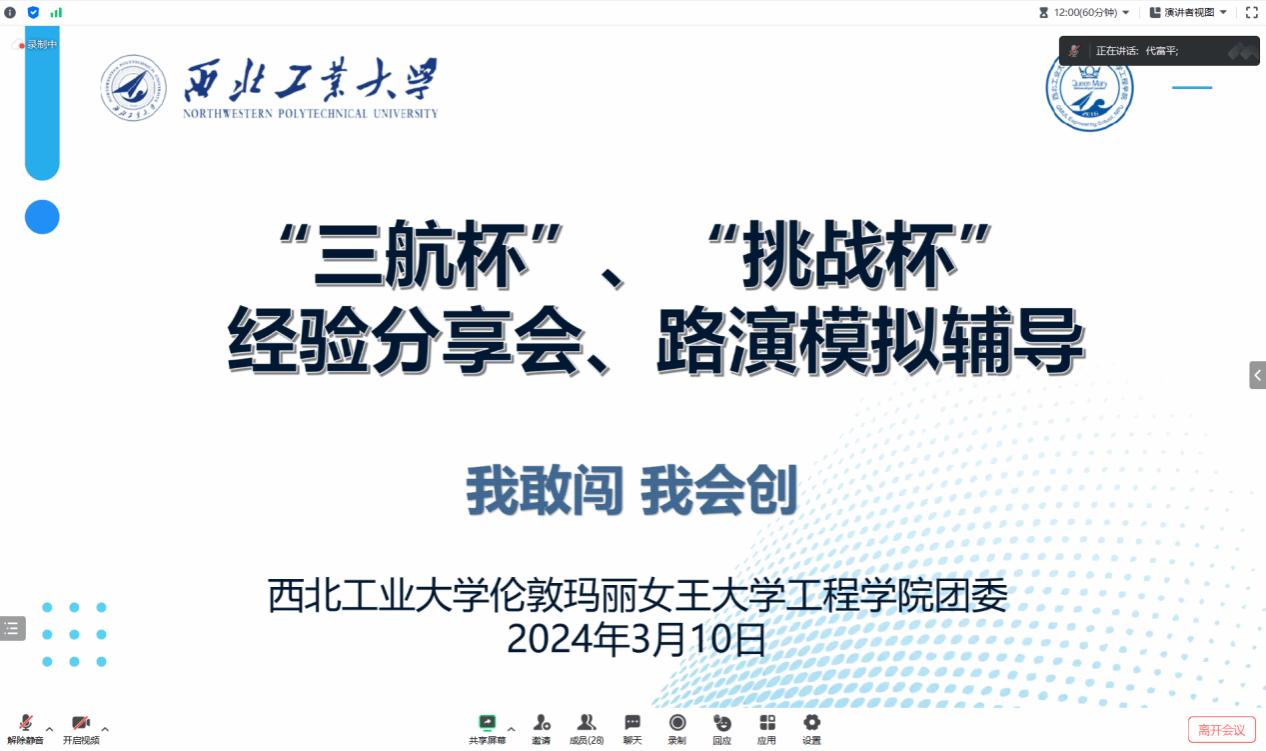
The 13 participating teams were divided into three groups for the rehearsal, which consists of a 5-minute presentation and a 3-minute question-and-answer session. Yan Yi, Zhuang Qiang, and Liu Jia participated in the first group (Innovation Group) lectures, respectively guiding the projects “Structural Health Monitoring System for Ultra-High Temperature Extreme Service,” “HA Intelligence-Environmentally Responsive Soft Gripper,” “Cleaner-Autonomous Waste Sorting Processor,” “CR Empower-Multifunctional Innovative Animal Recognition Platform,” and “Biomimetic Space Pen Innovative Design Based on Capillary Phenomenon” with meticulous and patient guidance. They pointed out the shortcomings of the participants during the defense process, provided suggestions to enhance defense skills and improve defense proficiency, and encouraged the teams to make adequate preparations for the competition.
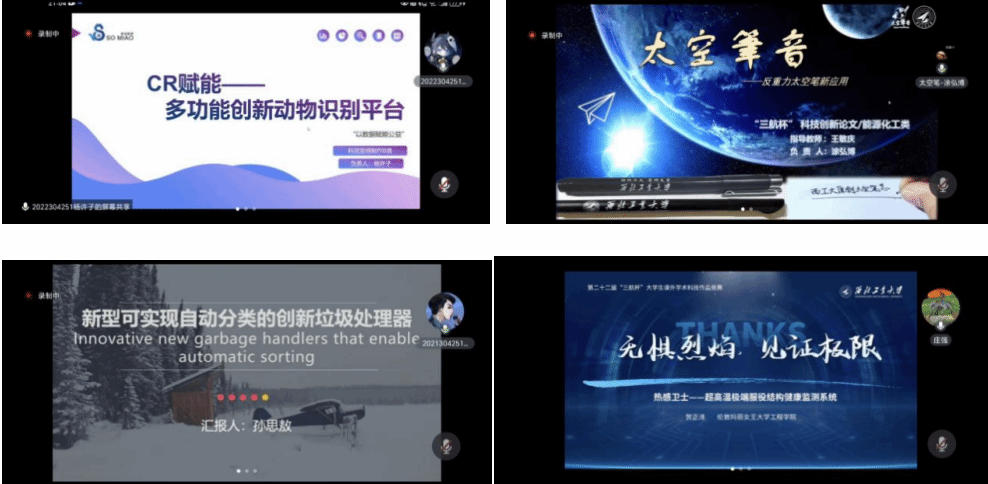
Dai Fuping, Qin Jianbin, Feng Huiying, and Huang Quanzhang participated in the guidance of the second group (Entrepreneurship Group). Zhang Yaxin, Qiu Huantian, Wang Boyi, and Tian Zhixuan, the four project leaders, successively presented their projects for defense: “Leader in High-performance Structural Components for New Energy Vehicles and Aerospace Craft,” “Fully Automatic Garbage Sorting and Packaging System Recognized by Artificial Intelligence,” “M-Optics: A Cutting-edge Domestic Software for Advanced Multiscale Photonics Design,” and “Supplier of Resin-based Flame-retardant Composite Materials Based on Hyperbranching Structures.” The teachers provided feedback based on the project’s innovation points, the judges’ focus, and defense considerations.
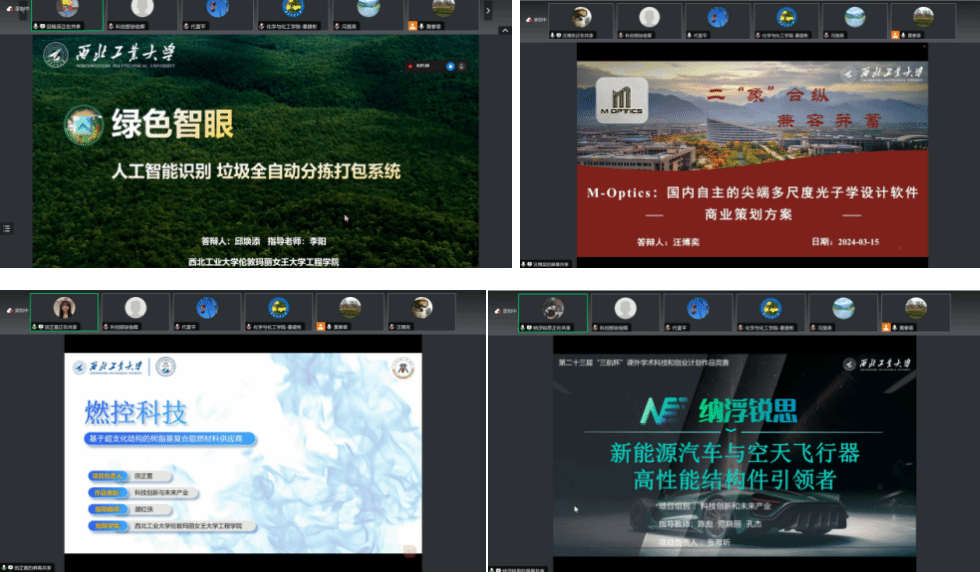
Li Zhen, Cheng Yin, and Song Jiayin participated in the coaching for the third group (Entrepreneurship Group). Liang Jingkun, Cheng Yuhao, Yu Xinyue, and Zhang Zhengjie, the four defenders, respectively presented their projects “Energy Solutions for Long-endurance UAVs,” “Intelligent Comprehensive Ecological Monitoring Platform,” “Novel Coating for Corrosion Resistance in Ocean Engineering,” and “Transition Metal-based Materials for Promoting CO2 Absorption and Their Performance Research.” The teachers encouraged each team to strengthen internal cooperation and provided professional guidance and improvement suggestions in areas such as PPT optimization, content presentation, and logical expression.
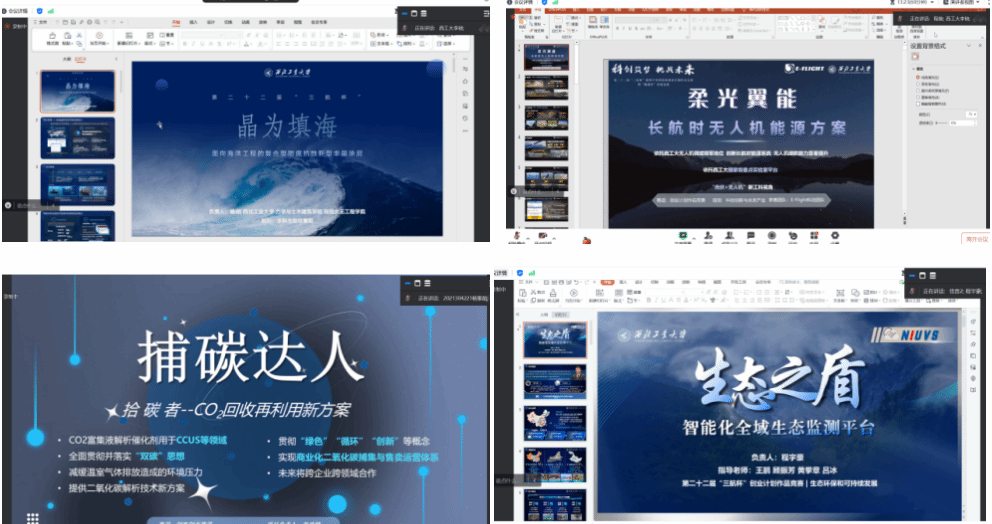
The meeting has deepened the understanding of the “Challenge Cup” competition among all teams, promoting active exploration of ways to improve projects and enhancing the significance of improving project quality and defense capabilities. Since its establishment, QMES has placed great emphasis on cultivating students’ innovative abilities. It vigorously fosters an atmosphere that values science and encourages innovation, fully mobilizing students’ enthusiasm for participating in innovation, entrepreneurship, and academic competitions. The school actively explores scientifically sustainable project selection and training mechanisms, advancing a mentorship model of “experienced guiding the new” and “knowledge sharing,” promoting a ladder-style cultivation mode. Each year, it strategically selects and cultivates reserve projects for major competitions, striving to achieve breakthroughs in various disciplines competitions such as “Internet Plus” and the “Challenge Cup,” thereby pushing the quality of talent cultivation in the school to new heights.
Text: Lei Qi’er, Li Jiaming, Qu Yi, Xu Junhui
Photo: Lei Qi’er, Li Jiaming, Qu Yi, Xu Junhui
Editor: Song Jiayin
Translator: Zhou Yaru
Review: Cheng Yin, Huang Quanzhang

